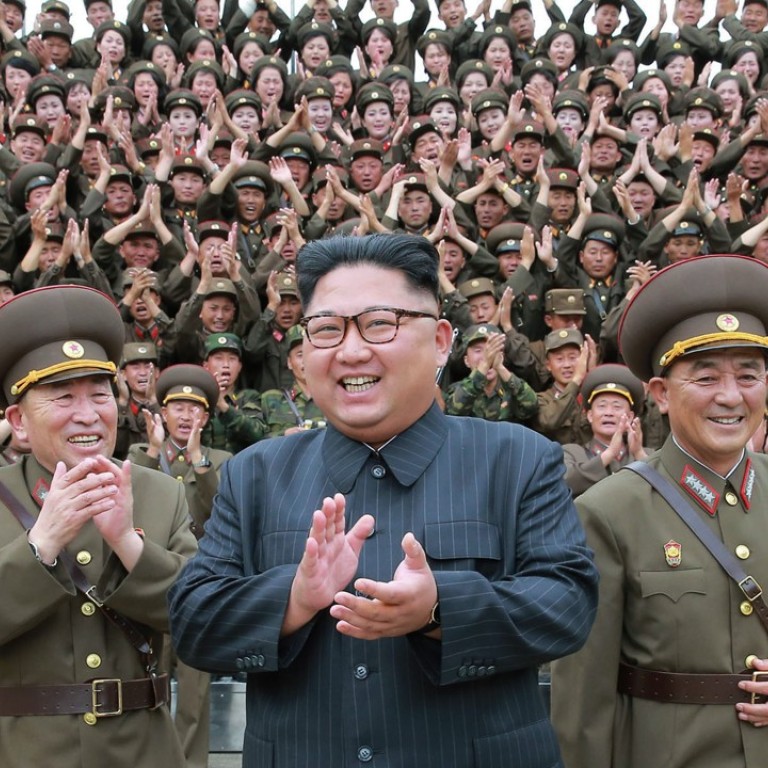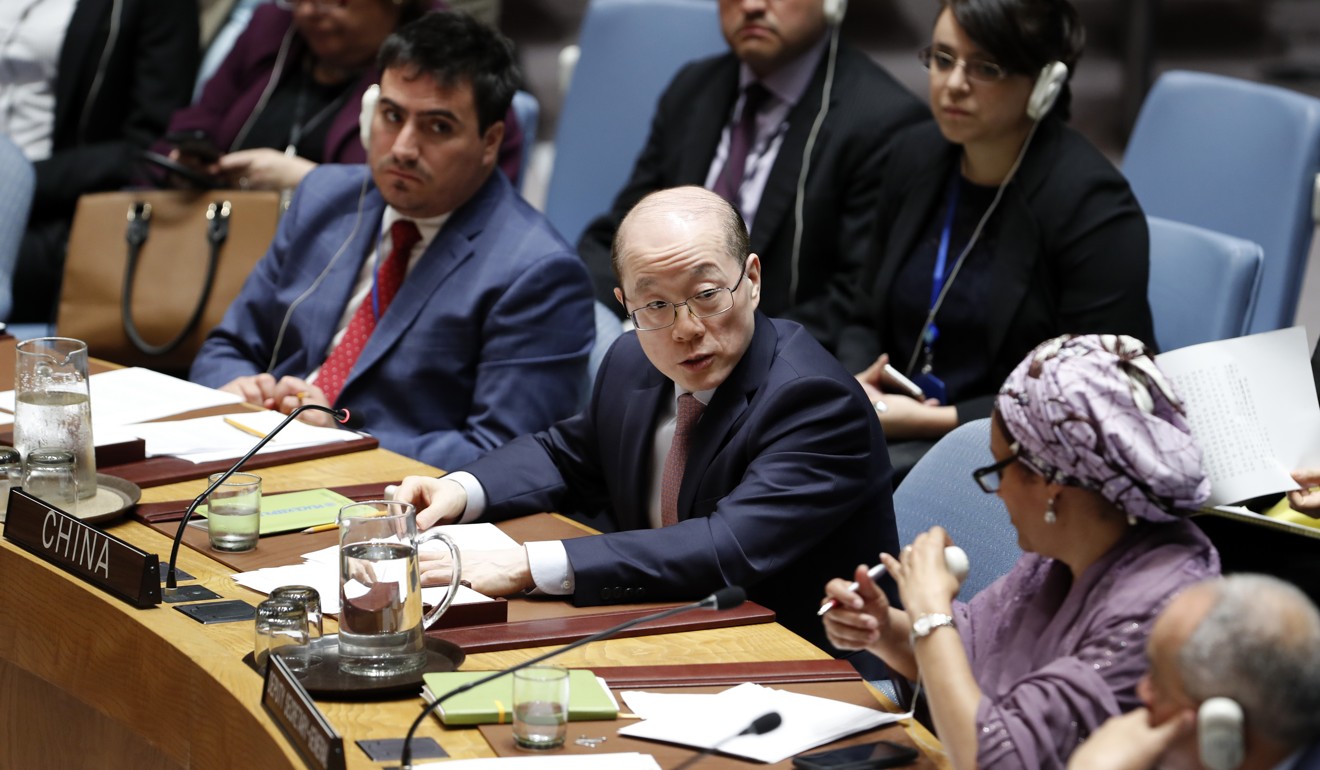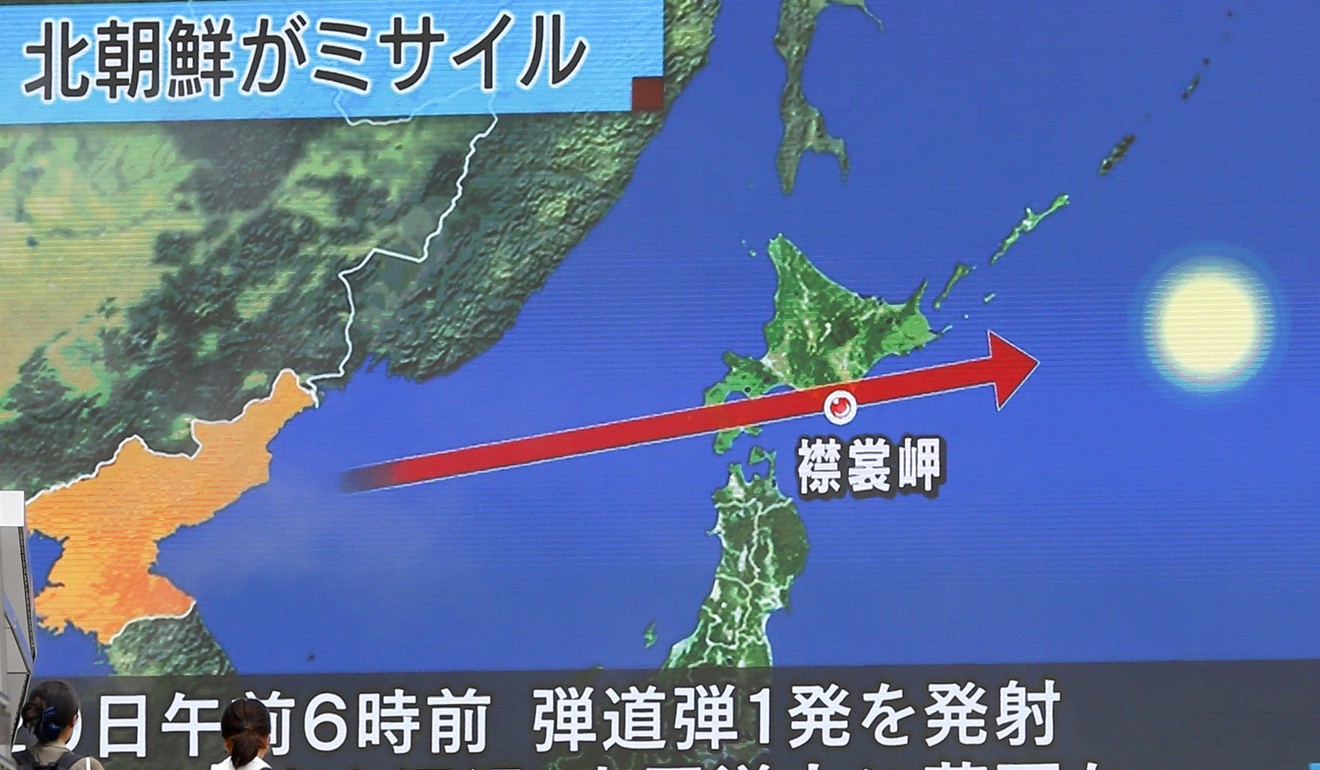
UN Security Council condemns North Korea’s latest missile provocation without imposing new sanctions
While supporting the statement, China called on the US and South Korea to dismantle a missile defence system they have deployed in South Korea
The UN Security Council, in an emergency meeting, issued a statement condemning North Korea’s launch of a missile over Japan’s airspace, but stopped short of any new sanctions or other specific measures to rein in Pyongyang.
While supporting the statement, China and Russia assigned some blame to other Security Council members for a recent escalation in tension and criticised the US for secondary sanctions issued recently against companies Washington accused of violating existing sanctions against Pyongyang.
China also called on the US and South Korea to dismantle a missile defence system they have deployed in South Korea.

Although Pyongyang has launched dozens of missiles over the past year in violation of UN Security Council sanctions, the latest by Pyongyang triggered immediate condemnation from Tokyo, the US and China as it was the first North Korean missile in eight years to fly over Japan.
The UN Security Council statement “strongly condemns the [August 28] ballistic missile launch by [North Korea] that flew over Japan as well as the multiple ballistic missile launches it conducted on the 25th of August”, Security Council President Amr Abdellatif Aboulatta said in the meeting.
“The Security Council further condemns the DPRK for its outrageous actions and demands that DPRK immediately cease all such actions, which are not just a threat to the region, but to all UN member states.”
The statement also calls on Pyongyang to “abandon all nuclear weapons and existing nuclear programmes in a complete, verifiable and irreversible manner” in keeping with a series of resolutions issued since 2006.

However, the unity broke down into a stand-off of sorts when four of the Security Council ambassadors – Japan’s Koro Bessho, the US’s Nikki Haley, China’s Liu Jieyi and Russia’s Vassily Nebenzia – delivered individual statements, with Japan and the US pitted against the other two.
“Enhancing military deployment on the peninsula won’t help towards achieving the goal of denuclearisation or regional stability. The deployment of the THAAD system in northeast Asia severely jeopardises the regional strategic balance, undermining the strategic security interests of all regional countries, including China,” Liu said, calling for the immediate dismantling of THAAD.
THAAD can shoot down intermediate-range missiles such as those that North Korea recently had said it planned to fire over Japan and land near Guam. China has consistently opposed the deployment of THAAD in South Korea, saying it would do little to deter the missile threat from North Korea while allowing the US military to use its radar to look deep into its territory and at its own missile systems.
Beijing has also been troubled by the possibility the THAAD system would open the door to a wider deployment of US missile defence systems, possibly in Japan and elsewhere, military analysts have said.
“China also urges countries to stop the practice of resorting to domestic legislation imposing unilateral sanctions on individuals and entities in other countries,” Liu said.
Last week, the US announced a set of secondary sanctions against 16 Chinese and Russian entities as part of its efforts to cut off trade with North Korea and starve the country’s military of the cash it needs to develop nuclear weapons.
Chinese companies facing sanctions include Dandong Rich Earth Trading Company, which the US accused of buying vanadium ore from Korea Kumsan Trading Corporation, a company already sanctioned by the UN Security Council. Mingzheng International Trading Limited was also named in the action as a “front company” for North Korea’s Foreign Trade Bank.
After endorsing the joint statement, calling North Korea’s missile launches “a major risk to sea and air transportation”, Nabenzia backed the “suspension-for-suspension” proposal floated by China and Russia after they passed the most recent resolution against North Korea. That would require North Korea to freeze its nuclear weapons programme in exchange for an end to US-South Korea joint military exercises.
“We categorically reject military solutions to issues plaguing the Korean Peninsula,” Nabenzia said.
The US-South Korean exercises, called Ulchi-Freedom Guardian, involve about 17,500 US servicemen, including 3,000 from outside South Korea. The exercises, which have been conducted annually since the 1970s, started last week and will run until August 31.
While Haley didn’t address the demands for a halt to the US-South Korea war games, she had said earlier this month that the US wouldn’t do so because Ulchi-Freedom is a purely defensive exercise essential for the protection of allies in the region.
South Korea’s Joint Chiefs of Staff said the ballistic missile travelled around 2,700km and reached a maximum height of 550km as it flew over the northern Japanese island of Hokkaido. The missile broke into pieces and landed in waters east of the island, according to Japanese broadcaster NHK.
In July, North Korea fired two intercontinental ballistic missiles in separate tests that analysts said showed the country’s ability to strike mainland US cities.
Those tests triggered the most recent UN Security Council resolution against Pyongyang, which passed on August 5. China and Russia, the most reluctant among UN Security Council member nations to ratchet up pressure on North Korea, voted in favour of that resolution, which banned UN members from buying North Korean coal, iron ore and other key commodities in a move that would cut the country’s export revenue by about US$1 billion, or about one third.
Haley tweeted before the UN Security meeting that Pyongyang’s latest missile launch was “unacceptable” and that it was imperative for the Security Council to come to an agreement on a response.

